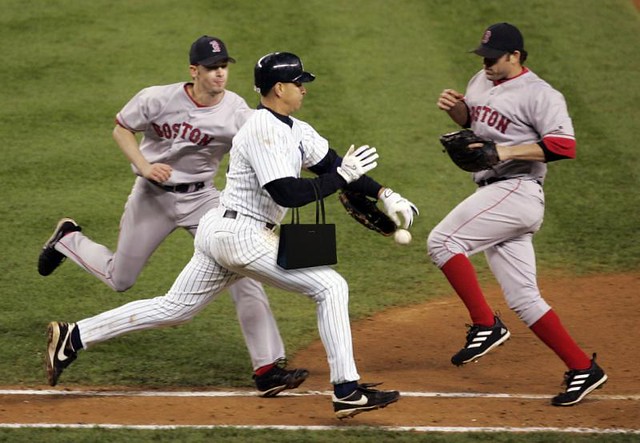 How can a narcissistic culture be shaken by the prospect of the Advent of the Lord Jesus Christ? This was the question I had in mind as I preached on Revelation 1 leading into Advent. It took me back to memories of my bow-tied and bearded philosophy professors, crunching leaves crossing the quad at Trinity College, great thoughts in great buildings long ago...
How can a narcissistic culture be shaken by the prospect of the Advent of the Lord Jesus Christ? This was the question I had in mind as I preached on Revelation 1 leading into Advent. It took me back to memories of my bow-tied and bearded philosophy professors, crunching leaves crossing the quad at Trinity College, great thoughts in great buildings long ago...
I recall the progress of my philosophical studies as an undergraduate. There was initial excitement in freshman philosophy. Then the inspiration of thinking about ideas, truth, beauty and goodness, considering virtue and the examined life with the Ancient Greeks. We studied the big, universal ideas and examined how we compared, fit in with them, aspired to them, etc. In the higher level courses, though, there was a subtle turning from the great things out there, apprehending the truth of them, to the examination of experience. From Hegel to Heidegger, philosophy shifted to phenomenology, the notion that we don’t think about universal truth first, but about the world before us. So the shift was from self-knowledge comparing how you or I measure up to ideals, to knowledge of the world originating in subjective experience, with the world defined as it is experienced by you and me.
The point is that what is radical in the academy becomes mainstream in the culture a generation or two onwards. The phenomenology of the pre-war philosophers resulted in the deconstructionism of the post-war philosophers. Do you know that deconstructionism is not flagged by my spell-checker? It has entered the common vocabulary. The individual becomes the determiner of the truth of a matter, or the meaning of a text. All is subjective. (Though I'd add that Phenomenology wasn't entirely subjectivist, but I do think led to this stance).
For many years, eighteen year olds have taken a standardized personality test
(the Minnesota Multiphasic Personality Test, with thanks to the interview on Mars Hill Audio of Jake Halpern). The question, yes or no, “I am an important person” was answered yes by 12% of eighteen year olds in the early 1950’s. By the end of the 1980’s, when I took the same test, well over 80% of eighteen year olds said yes, “I am an important person”. My generation grew up on the self-esteem movement, well intentioned, addressing needs in society. But the cure may have been worse than the problem. Television short
films instructed a generation: ‘the most important person in the whole wide world is you’. Cartoon figures, Fumble, Harry and Bird encouraged us “to find out about the things you feel and do, because you’re the most important person in the world to you, the most important person.”
So as we come to our lives today, there is a philosophical movement that changed the epistemology of western culture, diminishing objective ideas and virtuous ideals in favor of subjective experience and self glorifying connectivity of Twitter, Facebook, blogs (two of which I employ!).
This has had disastrous effects in terms of theology, with the near destruction of our own denomination in North America. Experienced based theology turns out to be sophisticated idolatry, gods of our own making from treasures God has given, much as the Israelites formed a golden calf to worship from the treasures God gave them in rescuing them from Egypt. It doesn’t show itself only in theology that put experience alongside the Word of God as carrying authority. This narcissism shows itself in putting the self at the center, at the start, me, my need, the truth begins with me rather than with God. Like phenomenology, the start is me and my perceptions, experiences. God then serves me, rather than my serving God.
This is not just the bogeyman of liberal theology, that treats the truth of God like a salad bar (take what you like, leave the rest). It can function in my own theological framerwork, too, for instance in viewing Jesus as a coupon for salvation (his transaction on the cross viewed only in terms of its effect on me). In contrast, the Bible begins with “In the beginning God...” and ends with the Lord being worshipped by the people He has redeemed. If I begin with “I need a savior”, that is good and true, but may be the wrong start if my salvation is the centrepiece rather than the God who saves me.
But this stance has led beyond subjectivism to the natural outworking, narcissism, of the self as the object of worship. And this is destructive to human beings because it prevents successful relationships. And significant relationships are essential to human flourishing.
I was struck by this observation from the Last Psychiatrist web log (blog):

Being on YouTube, having a blog, having an iPod, being on MySpace-- all of these things are self-validating, they allow that illusion that is so important to narcissists: that we are the main characters in a movie. Not that we're the best, or the good guys, but the main characters. That everyone around us is supporting cast; the funny friend, the crazy ex, the neurotic mother, the egotistical date, etc. That makes reminders of our insignificance even more infuriating.
I'm not saying each of us as individuals is insignificant. We should, could, matter. But to protect ourselves from an existential implosion, we decide to define ourselves through images and signs, rather than behaviors; lacking an identity founded in anything real makes us vulnerable to anger, resentment. But no guilt, ever. The narcissist never feels guilt. He feels shame.
Weblog thelastpsychiatrist.com, Dec 17, 2006 blog entry
following Time Magazine’s Person of the Year 2006 being “You”.
Into this cultural milieu, I wonder how you receive the powerful, and simultaneously dangerous and tender vision of Jesus that John records in
Revelation 1 -- with awe, or a yawn? Does Advent matter because it is a category that appeals to you or me, or because it is real and thus must be dealt with as surely as the sun rising tomorrow?
Pictured: Northam Tower on the Trinity Quad, Professor Miller Brown of the Philosophy Department, and my thesis adviser, a wonderful man and engaging thinker. Photos: trincoll.edu, Time Magazine.



































